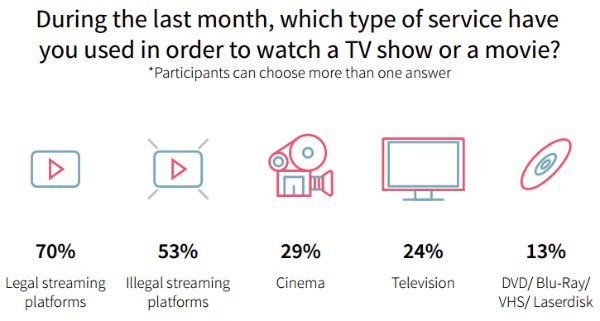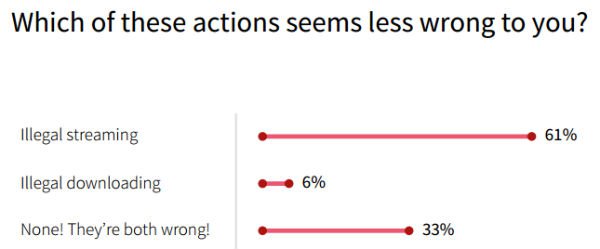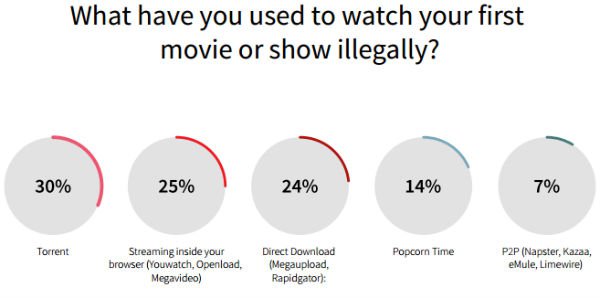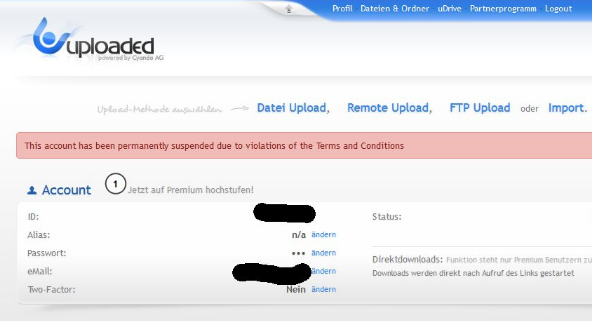Cisco Draws Attention To The Rise of Pirate IPTV
jeudi 13 avril 2017 à 11:22 It’s often said that the peer-to-peer file-sharing boom of the early 2000s was fueled by the entertainment industries’ failure to offer their content in the digital domain. It took years for them to respond but content is now more widely available online than any time in history.
It’s often said that the peer-to-peer file-sharing boom of the early 2000s was fueled by the entertainment industries’ failure to offer their content in the digital domain. It took years for them to respond but content is now more widely available online than any time in history.
Of course, in the background there are still millions of people who prefer to get their content fix for free. The lure of BitTorrent and unauthorized online streaming platforms remains strong but there is a noticeable trend of people wanting their content delivered to a TV instead of a computer screen.
With that in mind, it’s no wonder that the rise of Kodi has been so dramatic. The legal media player augmented with a wide range of unauthorized third-party plugins is a pirate’s dream, providing huge volumes of premium content at zero cost. The system does have its drawbacks, however.
Depending on the content, at times these setups can be unreliable, particularly when it comes to offering live sports. Streams are often low quality, if they stay online at all, a frustration to anyone trying to enjoy a real-time event.
One solution to this problem is to buy a $100 package from an official TV provider. Another is to pay a few dollars, euros, or pounds a month to an illegal IPTV supplier, who will provide thousands of often HD quality channels and VOD, with much greater reliability and accessibility than anything available for free.
When monitoring various anti-piracy companies, it’s clear that IPTV is a growing concern. Companies like Premier League partners Irdeto are clearly involved in tackling the issue and now networking company Cisco has shown its hand.
Cisco says it has spent years monitoring all kinds of piracy but its research into illicit IPTV suggests momentum in the area. Describing the Internet as a “great equalizer”, it says that some services could be “run by a teenager on a home PC” while others have companies and racks of servers behind them. Despite the apparent gray area, the big ones do stand out, however.
Cisco homes in on one particular supplier called RapidIPTV. According to its own data the company has 170,000 subscribers. Although market prices vary depending on package size and whether a subscription is bought through a reseller, each could be worth around $10 to $15 per month. Clearly there are significant sums of money involved, even for new entrants to the market.
“Servers which have only been recently launched can be expected to have hundreds of subscribers. Well-established servers might have 5,000-10,000 subscribers,” Cisco says.
The company says it spends time scouring online forums, the main marketplaces where IPTV packages are made available. One of the most active forums has 285 IPTV servers on offer.
“Conservatively, it’s fair to assess that for these 285 servers, there’s an average of 1,000 viewers per server in this highly competitive environment,” Cisco says.
“When we extrapolate from the forum described above, we can conclude that this single forum can easily reach 285,000 viewers. An average forum has offerings of hundreds of servers and each one has thousands of customers.
“So, with hundreds of popular forums worldwide and thousands of customers per site, the global scale of the problem is clearly visible to those of us visiting the forums and maintaining statistics.”
While Cisco doesn’t name the forum in question, the site has been operating openly for many years, without obvious signs of legal trouble. The same cannot be said about people who actually provide the services, however.
As highlighted by various raids in the UK, Spain, Bulgaria and elsewhere, the authorities are certainly very aware of the problem. These raids won’t be the last either, something that may put pressure on supply.
“I expect our prices to go up during the next few months,” one supplier told TF on condition of anonymity. “We all know that IPTV is in the crosshairs so suppliers who can’t stand the heat will get out. That might cause capacity problems but you know, it’s a moth to a flame. Others will setup, there’s money on offer. We’ll see.”
The rise of IPTV is certainly interesting from a piracy perspective, since it appears to offer a stepping stone for those currently disappointed by free web streaming but can’t or won’t pay the relatively large sums demanded by broadcasters.
Also of interest is whether companies such as the newly aggressive Netflix will begin to see IPTV services that come bundled with VOD packages as serious competitors. After all, for around the same price as Netflix, it’s possible to get a premium IPTV service with thousands of movies on demand.
Source: TF, for the latest info on copyright, file-sharing, torrent sites and ANONYMOUS VPN services.
 Despite the widespread availability of legal streaming services, piracy remains rampant among millennials in North America.
Despite the widespread availability of legal streaming services, piracy remains rampant among millennials in North America.


 With millions of visitors per month,
With millions of visitors per month, 
